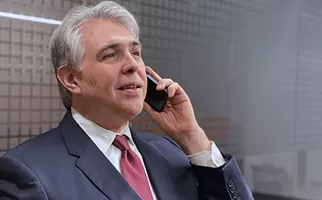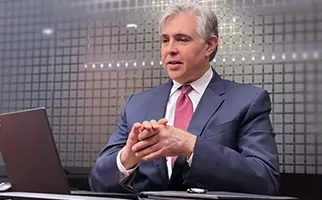PATENTS
Patents are often confused with copyrights and trademarks. While they are all considered a form or intellectual property protection, patents serve some very important purposes that the others do not.
What is a Patent?
A patent is a form of intellectual property that provides the patent owner with the right to exclude others from manufacturing, making, using, marketing, selling, or importing a claimed invention for a set period of time. This right is granted to an inventor by the federal government.
The patent can be granted for an invention, like a new product or a process that generally provides a new way of doing something. It can even be granted to someone that offers a new, technical solution to a problem.
Patents are Territorial
This means a patent issued by a particular country will not provide any protection in other countries. That said, an patent application filed in one country, such as the United States, can often be used to claim an earlier priority or filing date in another country.
Patents Can be Licensed
The owner of a patent may give permission to, (or license) other parties to use the invention. The owner may also sell the right to the invention to someone else, who then becomes the new owner of the patent.
A Patent Can Expire
Once it does, the protection ends and the invention enters the public domain. At that point anyone can commercially exploit the invention without infringing the patent.
There are Three Types of Patents:
Utility Patents
These are the most common type of patent. They are granted to new machines, chemicals and processes.
Design Patents
These are granted to protect the unique appearance of design of manufactured objects, such as the surface ornamentation or overall design of the object.
Plant Patents
These are granted for the invention and asexual reproduction of new and distinct plant varieties, including hybrids.
Patent law can be complicated and while anyone can apply, it is important to remember that patent attorneys hold a vast amount of experience with not only applying but enforcing and leveraging all the ways a patent can more than pay for itself.
Patent 101
Watch Our Video
Here’s a short video describing an overview on patents. It covers a lot of the basics, including the three main types of patents:
-
- Utility Patents
- Design Patents
- Plant Patents
Call for a Consultation
(630) 318-2606
Let’s Talk About Your Invention
Phone Consultation
Find it easier to talk rather than write? Have a lot of questions you want to ask? Let's talk over the phone.
Virtual Consultation
Need to share something on screen with us? Like to see who you are working with? Let's get online.
In-Person Consultation
Prefer a face-to-face and a handshake? We have offices in Chicago or Naperville, Illinois.
Whether you are at the initial starting stage, or trying to protect and enforce what you’ve already have, we can help patent and protect your idea or invention. Reach out to us today. We will quickly set up a time to discuss your intellectual property with an experienced patent attorney.
Available 24/7
Patent FAQs
Here’s a list of the most frequently asked questions about patents. Open each to see our pages dedicated to that topic.
How long does it take to get a patent in Chicago?
The timeline varies depending on the type of patent and the USPTO’s backlog. On average, utility patents take 1-3 years, while design patents are typically processed faster.
What is the cost of filing a patent?
Patent costs vary based on complexity. A utility patent can range from $5,000 to $15,000+, including USPTO and attorney fees. Design patents generally cost less.
Can I enforce my patent if someone infringes on it?
Yes, patent owners can legally enforce their rights and may file lawsuits in federal court for injunctions or damages. A patent attorney can help navigate the process.
What is the difference between utility and design patents?
- Utility Patents protect the functionality of an invention (valid for 20 years).
- Design Patents protect the appearance (valid for 15 years).
Do I need a patent attorney to file a patent?
While not required, working with a patent attorney significantly improves your chances of success, ensuring a strong, well-drafted application and USPTO compliance.
How do I check if my invention is already patented?
A patent search helps determine if an idea is novel. You can search the USPTO database, but a comprehensive attorney-conducted search provides the most reliable results.
Experienced Patent Attorneys
The attorneys at the Law Offices of Konrad Sherinian have extensive experience in patent matters. We’ve helped clients obtain numerous patents, including more difficult categories such as software, electronics, and the mechanical arts. We have obtained numerous patents in the United States and throughout the world. In addition, we have litigated patent cases on behalf of both plaintiffs and defendants in District Courts throughout the United States.




